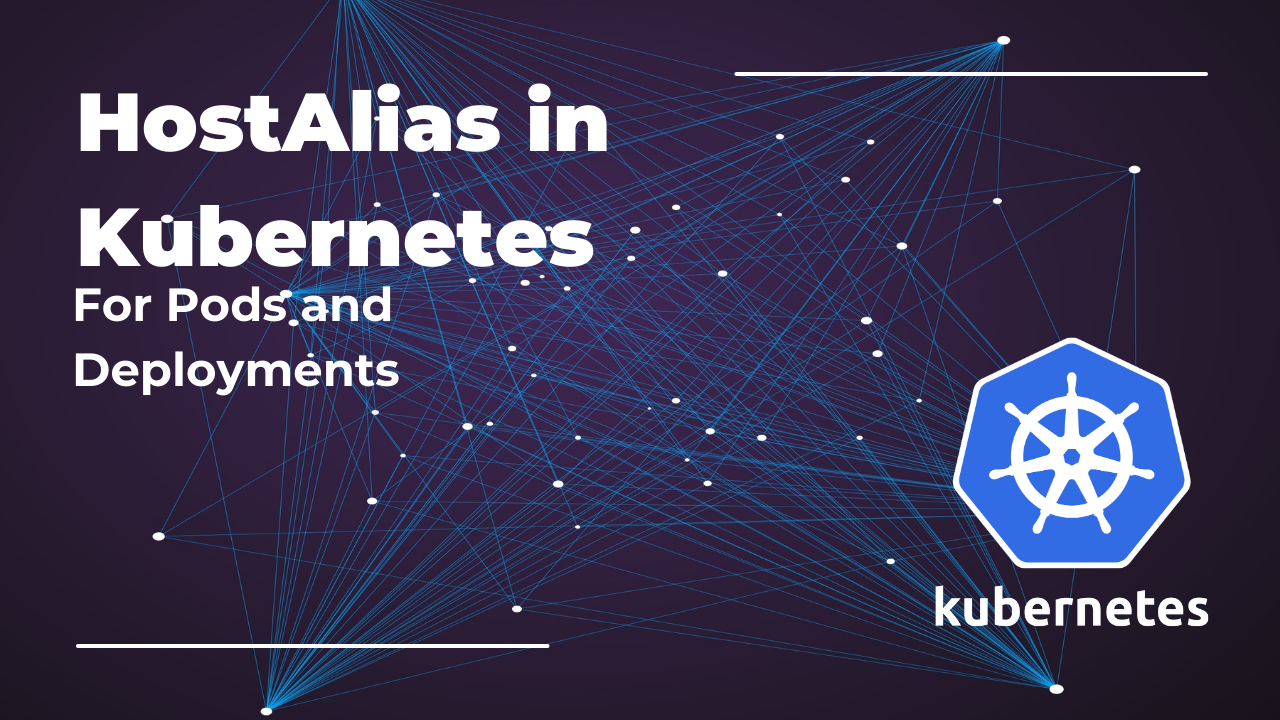Adding host aliases to your Kubernetes Pods or Deployments can feel like a secret trick not many people know about. If you’ve ever needed to resolve a hostname to a custom IP without setting up a DNS server, HostAliases might just be your new best friend.
Here’s everything you need to know about how it works, what happens under the hood, and how to set it up with examples for both Pods and Deployments.
What Are HostAliases in Kubernetes?
HostAliases let you manually map hostnames to IP addresses for your Pods. Think of it as a Kubernetes-native way to add entries to the /etc/hosts file of your container. When a Pod starts up, Kubernetes injects these custom mappings into the Pod’s /etc/hosts file alongside the default entries.
Why would you use it? Sometimes, you need custom hostname resolutions without relying on external DNS. For example:
- Testing local services or APIs without updating DNS.
- Temporary fixes when DNS configurations aren’t ready.
- Isolating hostname mappings to specific Pods or Deployments for flexibility.
How Does HostAliases Work Internally?
When you define HostAliases in your Pod or Deployment spec, Kubernetes handles it like this:
- Pod Creation: During Pod initialization, Kubernetes takes the
hostAliasesfield from your YAML spec. - Modify /etc/hosts: It merges the default entries in
/etc/hostswith the entries specified inhostAliases. Default entries include:- The Pod’s own hostname and IP.
- Cluster DNS entries for service discovery.
- Container Start: When your container starts, it inherits the modified
/etc/hostsfile.
Important Note: The hostAliases entries are static. If the IP of the target hostname changes, the /etc/hosts entry won’t update dynamically. For dynamic mappings, you’ll need a proper DNS setup.
Adding HostAliases to a Pod
Let’s say you want your Pod to resolve my-app.local to 192.168.1.100. Here’s how you can set it up:
apiVersion: v1
kind: Pod
metadata:
name: pod-with-host-aliases
spec:
containers:
- name: test-container
image: nginx
hostAliases:
- ip: "192.168.1.100"
hostnames:
- "my-app.local"What Happens Here:
- When the Pod starts, Kubernetes appends
192.168.1.100 my-app.localto the/etc/hostsfile inside the container. - Any application inside the container can now resolve
my-app.localto192.168.1.100without relying on DNS.
Adding HostAliases to a Deployment
For Deployments, the process is just as straightforward. Let’s configure host aliases for a deployment with replicas:
apiVersion: apps/v1
kind: Deployment
metadata:
name: deployment-with-host-aliases
spec:
replicas: 3
selector:
matchLabels:
app: my-app
template:
metadata:
labels:
app: my-app
spec:
containers:
- name: test-container
image: nginx
hostAliases:
- ip: "192.168.1.100"
hostnames:
- "my-app.local"
- ip: "192.168.1.101"
hostnames:
- "api.local"What Happens Here:
- Each Pod created by this Deployment will have the
/etc/hostsfile modified with:192.168.1.100 my-app.local192.168.1.101 api.local
- All replicas inherit the same host alias configuration, ensuring consistent hostname resolution across Pods.
When (and When Not) to Use HostAliases
Use It When:
- For quick testing or debugging without DNS.
- Isolating custom hostname mappings to specific Pods.
- Temporary fixes when DNS isn’t configured.
When Not to Use It:
- For dynamic environments where IPs frequently change.
- When DNS-based solutions are more scalable and maintainable.
Pro Tip: Use ConfigMaps or external DNS solutions for more dynamic and production-ready hostname resolutions.
Wrapping Up
HostAliases in Kubernetes is a handy feature when you need quick, static hostname resolutions without setting up a DNS server. It’s simple to configure and works great for temporary fixes, isolated scenarios, or testing environments.
But remember, it’s not a replacement for DNS. If you’re running production workloads, always aim for scalable and dynamic DNS solutions.
Have you used hostAliases in your Kubernetes setups? Share your use cases and tips in the comments below!
References
- Kubernetes Official Documentation: HostAlias v1 Core API
- Kubernetes Services and Networking Concepts
- Managing DNS in Kubernetes with ExternalDNS




